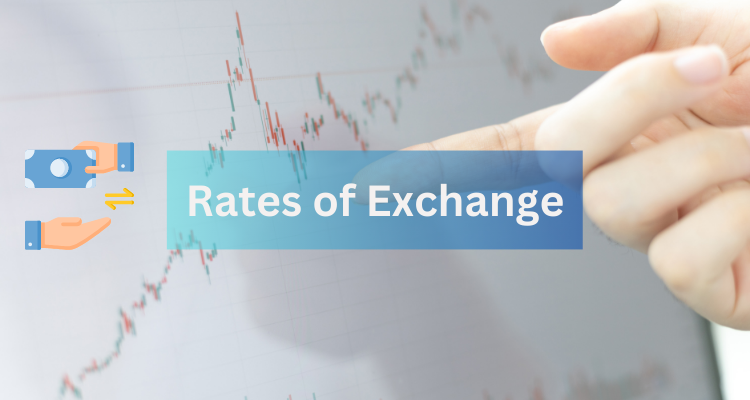What are Rates of Exchange?
Let’s learn about Rates of Exchange. In foreign exchange dealings, banks mainly buy and sell foreign currencies. When banks buy and sell foreign currency, they will quote a price to customers just like shops dealing with television sets or jewelry. The price of one currency expressed in terms of another currency is called an exchange rate.
In finance, an exchange rate is the rate at which one currency will be exchanged for another. It is also regarded as the value of one country’s currency in relation to another currency. For example, an interbank exchange rate of 114 Japanese yen to the United States dollar means that ¥114 will be exchanged for US$1 or that US$1 will be exchanged for ¥114. In this case it is said that the price of a dollar in relation to yen is ¥114, or equivalently that the price of a yen in relation to dollars is $1/114.
Each country determines the exchange rate regime that will apply to its currency. For example, a currency may be floating, pegged (fixed), or a hybrid. Governments can impose certain limits and controls on exchange rates.
In floating exchange rate regimes, exchange rates are determined in the foreign exchange market, which is open to a wide range of different types of buyers and sellers, and where currency trading is continuous: 24 hours a day except weekends (i.e. trading from 20:15 GMT on Sunday until 22:00 GMT Friday). The spot exchange rate is the current exchange rate, while the forward exchange rate is an exchange rate that is quoted and traded today but for delivery and payment on a specific future date.
Practice Questions
1. What is a foreign exchange rate?
A) The value of goods imported from other countries.
B) The rate at which foreign goods are sold in the domestic market.
C) The value of one currency compared to another.
2. Which of the following factors can influence foreign exchange rates?
A) Political stability
B) Economic growth
C) Inflation rates
D) All of the above
3. What is a fixed exchange rate?
A) An exchange rate that is determined by market forces.
B) An exchange rate that is set by the government and does not fluctuate.
C) An exchange rate that is based on the gold standard.
4. What is a floating exchange rate?
A) An exchange rate that is determined by market forces.
B) An exchange rate that is set by the government and does not fluctuate.
C) An exchange rate that is based on the gold standard.
Answers:
1. C
2. D
3. B
4. A
Apply for Foreign Exchange Certification
https://www.vskills.in/certification/Certified-Foreign-Exchange-Professional



